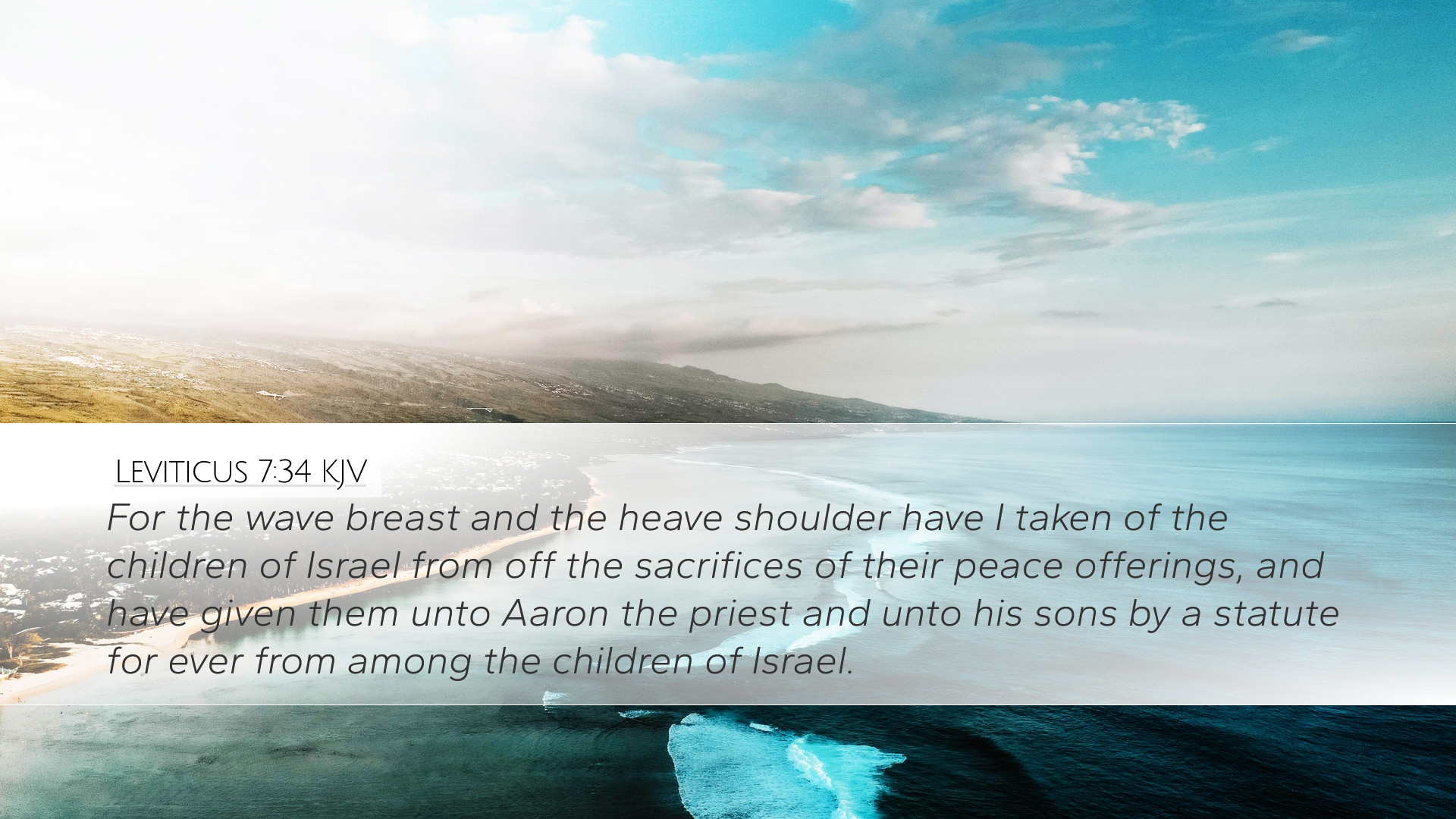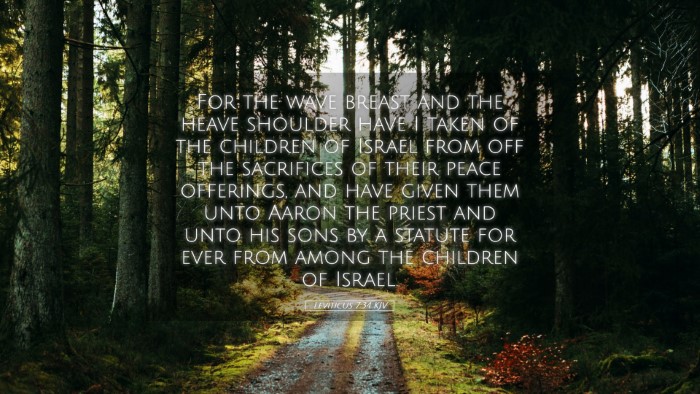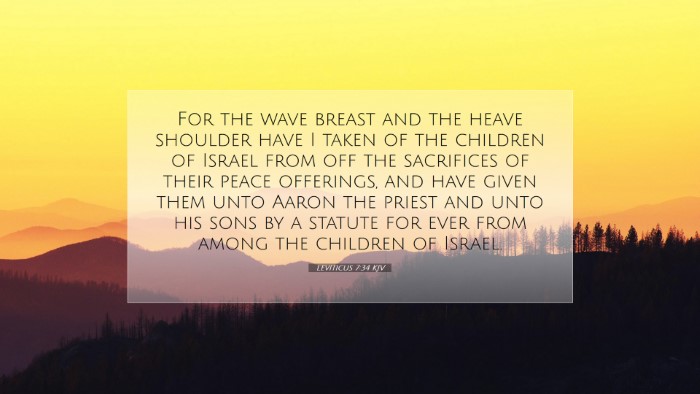Commentary on Leviticus 7:34
Leviticus 7:34 reads: "For the breast of the wave offering and the thigh of the heave offering have I taken of the children of Israel from off the sacrifices of their peace offerings, and have given them unto Aaron the priest and unto his sons by a statute forever from among the children of Israel."
Introduction
This verse forms a part of the Levitical codes concerning the sacrificial system established among the Israelites. It particularly addresses the portion of the offerings that are allotted to the priests, signifying both a practical and a theological insight into the maintenance of God's servants and the sacred duties they perform.
The Significance of the Offerings
In Leviticus, God provides a detailed manual for His people on how to approach Him through sacrifices. The peace offerings represent thankfulness, communion, and the fellowship between God and His people. Matthew Henry articulates this as reflecting a deep communal relationship facilitated through shared meals, where both God and man partake in the blessings.
Wave and Heave Offerings
The distinction between wave and heave offerings speaks to the different aspects of worship and acknowledgment of God’s providence. Albert Barnes elaborates on the ceremonial practices involved, emphasizing the act of waving and heaving as symbolic gestures of dedication and offering to God. These actions signify acknowledging God's sovereignty and the intention of consecrating these offerings for sacred purposes.
Divine Provision for the Priestly Class
A vital aspect of this verse is the stipulation that the breast and thigh of the offerings belong to Aaron and his sons, which carries theological implications regarding divine provision. Adam Clarke comments on this provision, noting that God ensures sustenance for those who serve Him in the priestly role. The stipulation that this is a “statute forever” indicates the perpetual nature of provision for religious leaders within the community.
-
1. Assurance of God's Care:
God’s establishment of the priestly portions reassures His people of His ongoing care and provision. The priests, acting as mediators, rely on these offerings, indicating their sacred role in bridging God and the individual worshippers.
-
2. Sustaining the Ministry:
The continuous provision serves to remind the Israelites of the importance of supporting those who lead the worship. Pastors and church leaders today reflect upon this principle, understanding it as a foundational aspect of their spiritual labor and communal responsibility.
The Implications for Modern Believers
In considering Leviticus 7:34, believers today are prompted to reflect on their own spiritual responsibilities towards those who minister. The directive for the Israelites can inspire contemporary practices of generosity and support within church bodies. Matthew Henry states that giving to the priests was not merely an obligation but a part of worship itself, restoring dignity and honor to those who serve the Lord.
The Role of Sacrificial Offerings in Today's Context
Even though the sacrificial system has been fulfilled in Christ, the principles underlying these practices continue to resonate. Albert Barnes articulates a profound truth that giving to God’s work should stem from gratitude and acknowledgment of His blessings. This correlation is vital for theological reflection and communal worship experiences.
Conclusion
Leviticus 7:34 functions as a reminder of the sacredness of worship, the importance of community support for spiritual leaders, and God’s providential care throughout the ages. The interpretation and significance drawn from this passage invite both theological inquiry and practical application for pastors, students, theologians, and scholars. The commitment to honoring God through sacrifices, whether ancient or modern, opens a dialogue about the ways in which believers express their devotion and support those called to serve in ministry.


